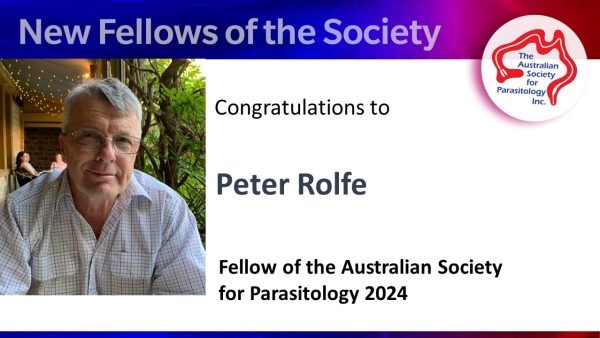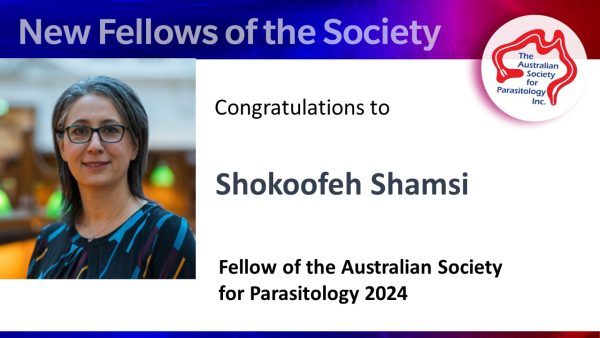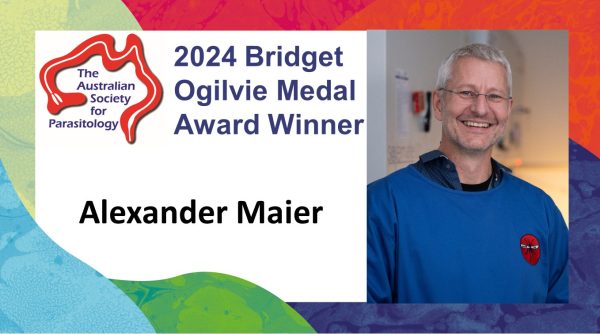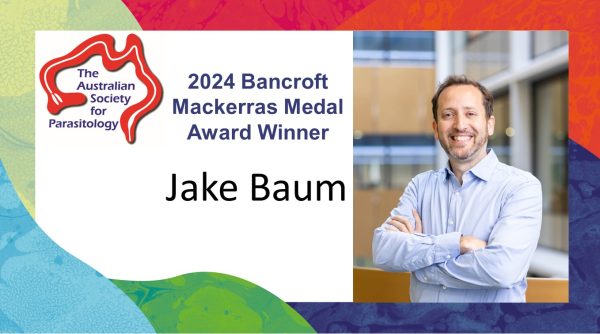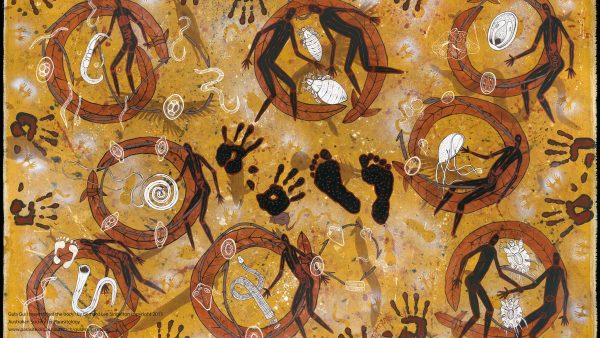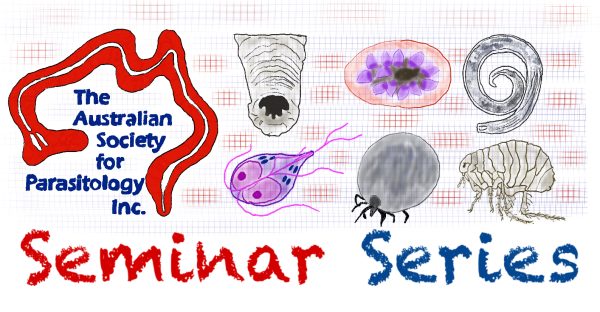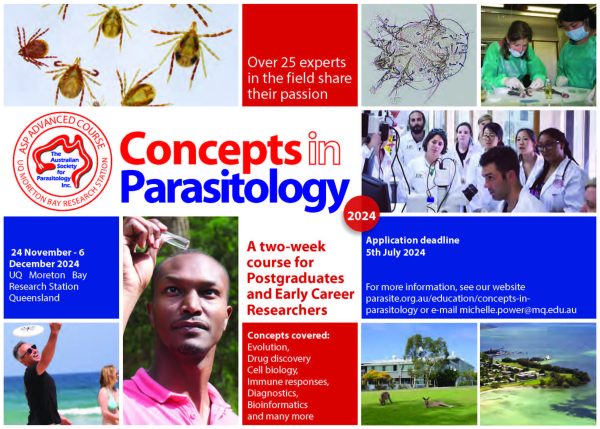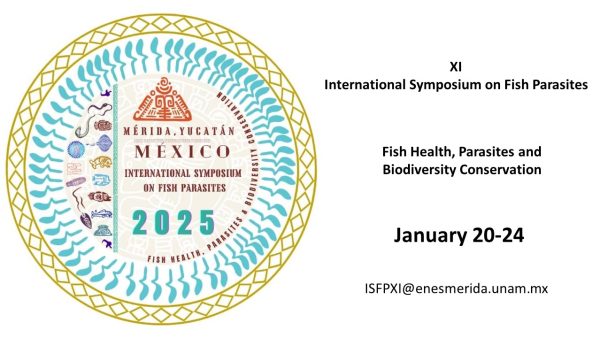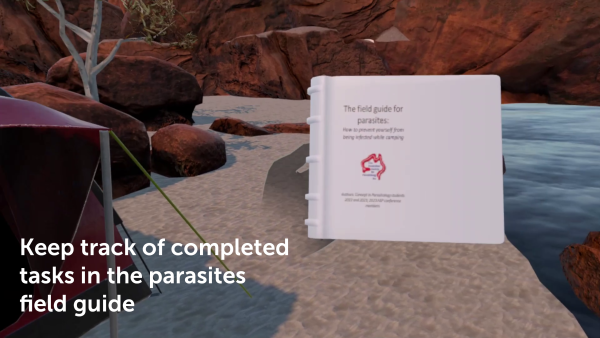Congratulations to 2024 Fellow of the Australian Society for Parasitology, Peter Rolfe
Congratulations to 2024 Fellow of the Australian Society for Parasitology, Peter Rolfe! Peter Rolfe is one those “busy bees” of parasitological experience and contribution, utilising expertise learned and gained from a variety of “parasitological pursuits and postings” and flitting from project to project, fertilising R, D & E operations with incisive research contributions and managerial…


